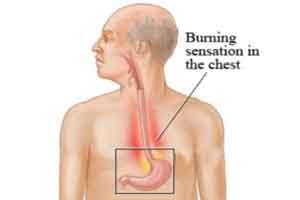- Home
- Editorial
- News
- Practice Guidelines
- Anesthesiology Guidelines
- Cancer Guidelines
- Cardiac Sciences Guidelines
- Critical Care Guidelines
- Dentistry Guidelines
- Dermatology Guidelines
- Diabetes and Endo Guidelines
- Diagnostics Guidelines
- ENT Guidelines
- Featured Practice Guidelines
- Gastroenterology Guidelines
- Geriatrics Guidelines
- Medicine Guidelines
- Nephrology Guidelines
- Neurosciences Guidelines
- Obs and Gynae Guidelines
- Ophthalmology Guidelines
- Orthopaedics Guidelines
- Paediatrics Guidelines
- Psychiatry Guidelines
- Pulmonology Guidelines
- Radiology Guidelines
- Surgery Guidelines
- Urology Guidelines
Gastroesophageal Reflux Disease: Practice guidelines

In the Indian Subcontinent, gastroesophageal reflux disease is one of the most common diseases that a physician are confronted with. Use, under-use, mis-use or over use of upper endoscopy then becomes a major concern for the practising physician in reaching the right diagnosis. In the absence of properly defined indications, practising physicians often face dilemma related to this diagnostic procedure, sometimes even landing into medico-legal issues
To clear the cloud, ACP had came out with the certain best practise advice to describe the indications for, and yield of, upper endoscopy in the setting of GERD and to help primary care physicians make high-value decisions about referral of patients for upper endoscopy.
The main recommendations of the Advice are as follows:-
Best Practice Advice 1: Upper endoscopy is indicated in men and women with heartburn and alarm symptoms (dysphagia, bleeding, anemia, weight loss, and recurrent vomiting).
Best Practice Advice 2: Upper endoscopy is indicated in men and women with:
Best Practice Advice 3: Upper endoscopy may be indicated:
You can read the full advice by clicking on the following link:-
http://annals.org/article.aspx?articleid=1470281
To clear the cloud, ACP had came out with the certain best practise advice to describe the indications for, and yield of, upper endoscopy in the setting of GERD and to help primary care physicians make high-value decisions about referral of patients for upper endoscopy.
The main recommendations of the Advice are as follows:-
Best Practice Advice 1: Upper endoscopy is indicated in men and women with heartburn and alarm symptoms (dysphagia, bleeding, anemia, weight loss, and recurrent vomiting).
Best Practice Advice 2: Upper endoscopy is indicated in men and women with:
- Typical GERD symptoms that persist despite a therapeutic trial of 4 to 8 weeks of twice-daily proton-pump inhibitor therapy.
- Severe erosive esophagitis after a 2-month course of proton-pump inhibitor therapy to assess healing and rule out Barrett esophagus. Recurrent endoscopy after this follow-up examination is not indicated in the absence of Barrett esophagus.
- History of esophageal stricture who have recurrent symptoms of dysphagia.
Best Practice Advice 3: Upper endoscopy may be indicated:
- In men older than 50 years with chronic GERD symptoms (symptoms for more than 5 years) and additional risk factors (nocturnal reflux symptoms, hiatal hernia, elevated body mass index, tobacco use, and intra-abdominal distribution of fat) to detect esophageal adenocarcinoma and Barrett esophagus.
- For surveillance evaluation in men and women with a history of Barrett esophagus. In men and women with Barrett esophagus and no dysplasia, surveillance examinations should occur at intervals no more frequently than 3 to 5 years. More frequent intervals are indicated in patients with Barrett esophagus and dysplasia.
You can read the full advice by clicking on the following link:-
http://annals.org/article.aspx?articleid=1470281
Next Story
NO DATA FOUND

Disclaimer: This site is primarily intended for healthcare professionals. Any content/information on this website does not replace the advice of medical and/or health professionals and should not be construed as medical/diagnostic advice/endorsement or prescription. Use of this site is subject to our terms of use, privacy policy, advertisement policy. © 2020 Minerva Medical Treatment Pvt Ltd